How nurseries show community leadership and create happier local neighbourhoods
by Mona Sakr Nurseries are at the heart of enabling children to positively contribute to the communities they live in. Through their work with children
What? Why? When? Where? What for? – and Why? yet again. Sometimes children’s questions just keep on coming. It can be wearing, especially if you are tired or very sure you have already answered as best you can. But it is well worth the effort to listen and answer properly. Children’s questions, and their comments, are the sounds of their thinking. They provide you with an opportunity to actually hear their thoughts. Young children learn many ways to use their skills of language – and asking questions is a good one.
If all is going well, young children learn to talk within their second year. This exciting development opens up their social world as much as learning to walk stretches what their bodies can do. At first, toddlers mainly learn the names of familiar objects and people. They also imitate little phrases that we hardly know we say so often! You might hear “Ohdearyme” and “Heylookadat” echoing back at you in a toddler voice.
Once toddlers are confident that everything and everybody has a name, then they ask their first questions. They can go for the “What is it?” question with an enquiring look or might firmly point a finger to say very clearly what they want. Soon they grasp the question format in words, with “Wassat?” (“What’s that?”) and “Whoozat?” (“Who’s that?”). They even learn to imitate how the tone of your voice changes when you ask a question.
It is important that toddlers get a friendly response to these early questions. Keep going, even if you seem to answer the same question several times.
Sometimes children’s questions are direct and simple to answer, such as, “When is lunch ready?” But even this question probably needs a bit more than just, “In five minutes”. A young child will not understand what five minutes means. You might say, “You’ve just got time to wash your hands” or “Now would be a good time to lay the table, if you’d like to help me.”
Children need to be curious to keep learning. Some exploration about “what?” and “how?” will be through their hands-on play. But sometimes curiosity has to be satisfied through conversation.
Children need to feel confident that adults are interested in their concerns. Then they will ask the most interesting questions. 3- and 4-year-olds have been known to ask questions like, “How do you get a rainbow?”, “Why don’t worms have any legs?”, “Where does the water go from our toilet?” or “How does our cake get big in the oven?” You will help young children by listening and giving a proper answer.
If you can, it’s a good idea to keep a note of children’s questions and their age when they asked. A simple diary is helpful to share if you look after other people’s children. Children’s questions show a lot about how they understand the world, as well as what puzzles or worries them. And children will be intrigued by anecdotes about their younger selves later on in childhood.
Some questions have a built-in challenge, or they may feel that way to you. Children ask, “Do I really have to …?” and “Why can’t I …?” You need to answer this question with more than “Yes” or “Because I say so”. You may be able to explain and offer some compromise, such as, “Yes, you do need to tidy up your books. But I will help you.” If you tell children that they cannot do something, then they deserve a simple and honest explanation.
Some challenges from children may be fair enough, but come with extras because they are delivered loudly when others can hear. A child may announce in an older child’s school play, “When can we go? I’m bored!” You can reasonably say, “Please speak quietly. It will hurt the children’s feelings to hear you say that.” But you may need to admit, “I know it’s been a very long sit. Would you be happier on my lap?” A favourite, quiet toy or a snack may be helpful in this situation.
Children’s skill in asking questions zooms ahead of their understanding of what other people might think or feel. They also take time to develop volume control. A question that feels fine just between you and the children can feel uncomfortable in public. You may feel your face warming up as, “Why are they called nipples?” is followed by, “Has everybody got nipples? Has the Queen got them? How do you know?”
Some questions can make you feel uneasy because you are more aware than young children of other people’s feelings, including your own.
Sometimes you will be busy and you do not hear a child’s question or miss the beginning. Try to get the moment back with, “Sorry, you were asking me about …”
Sometimes it is hard to understand exactly what young children want to know. You can help them ask the right questions by being clear about what you say. For instance, if you need a child to repeat something because you didn’t hear it, then say so clearly. But if you are puzzled, say that you don’t understand. This will help children learn that these words mean “Please tell me in a different way”. Sometimes you need to say, “Can you show me?” or try, “Do you mean …?” Confident children can then say to adults or other children, “No, that’s not what I meant” or “What I want to know is …”
Finally it is worth watching out for the balance with your own questions. Unless it is part of a game, children find it boring when adults ask lots of testing questions like, “What colour is it?” You know the answer and are asking only to find out if the children know.
Young children need adults who ask plenty of genuine questions, when you really want to hear the answer and the children can tell you because they know and you do not.
Jennie Lindon is a chartered psychologist, with over 30 years’ experience of working with early years services for children and their families. She has written many books and magazine articles for parents and early years practitioners.
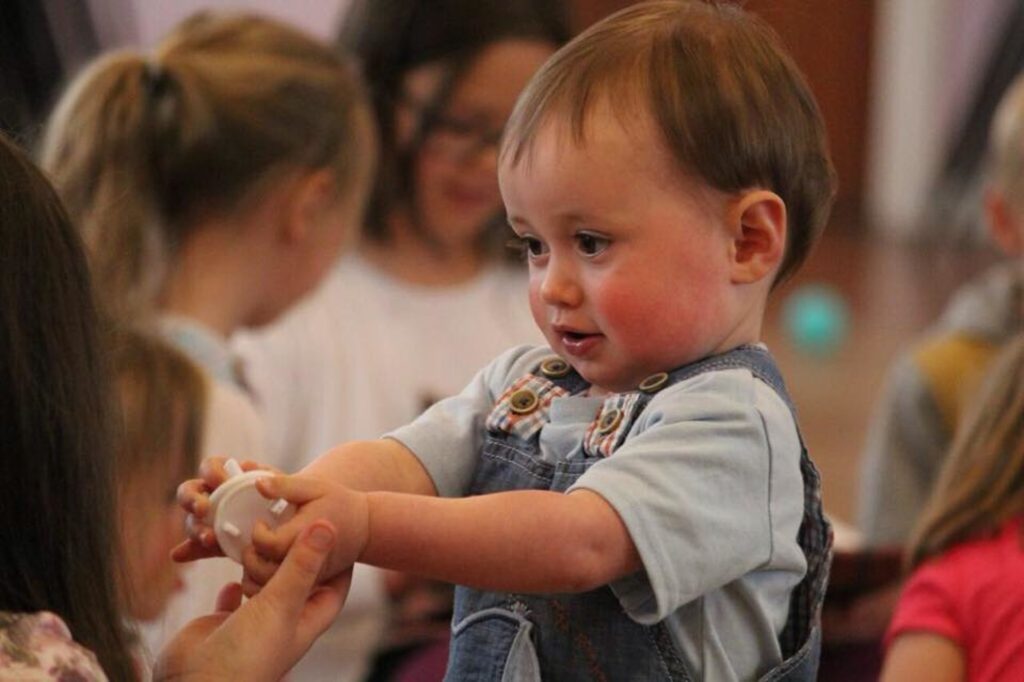
by Mona Sakr Nurseries are at the heart of enabling children to positively contribute to the communities they live in. Through their work with children
The benefits of being exposed to multiple languages from a young age have been widely discussed and researched, highlighting the cognitive benefits of being exposed
The Families’ Access to Nature Project was undertaken by the Froebel Trust and Early Education between October 2021 and January 2022. Children, their parents, and
ICT – what’s it all about? ICT is information and communications technology. The term simply means all the technology around us, things like mobile phones,
Toddlers are very busy people. They are keen to learn about the world around them and ready to be fascinated by things that seem ordinary
Children’s curiosity about the world around them is apparent from the day they are born. Babies quickly use all their senses to explore themselves and
Reading is fun. It’s also a key skill that helps us to learn and to live our lives – so starting to read is an
It’s true, maths really is everywhere, and learning about it doesn’t happen just at school or nursery. Young children have lots of important mathematical experiences
What is mark making? Mark making is the term used to describe the marks that children in their early years make on paper and is
The role of music in the early years Everyone knows how much young children love to sing and dance, but all too often music is
Children learn how to behave All children are individuals, because they are born with their own character. This is why even children within the same
Early childhood seems like a time of constant change to adults. Just as you’ve got used to a predictable daytime nap, your child decides that
Why go outside? Big movers Have you ever been in an open space with young children? The first thing they want to do is to
Young children are artists. They use all sorts of materials to show what they have noticed about the world. They might draw the rain falling
Taking care of a baby is tiring work, with a lot of feeding, nappies and broken nights. When you are exhausted, it can be harder
Having a voice There may be many reasons why young children do not have a voice. Perhaps they There could be many more reasons. Loss
Here are twelve links with free ideas to support play and learning at home, suitable for early years, nursery, reception and school aged children in
It is important to include families in helping to shape your decisions in relation to developments you want to make. Families know their circumstances best
Since the introduction of the EYFS framework in 2008 there has been a huge emphasis upon encouraging parents to become engaged in their children’s learning.
The Duchess of Cambridge launched The Royal Foundation Centre for Early Childhood on 18th June 2021 with a substantial report Big change starts small which identifies six
Entering the unknown It was extremely hard and emotional to say goodbye to the children and parents in my Reception class at the end of




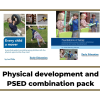
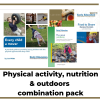
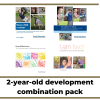
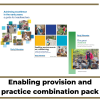
Early Education
2 Victoria Square
St Albans
AL1 3TF
T: 01727 884925
E: office@early-education.org.uk